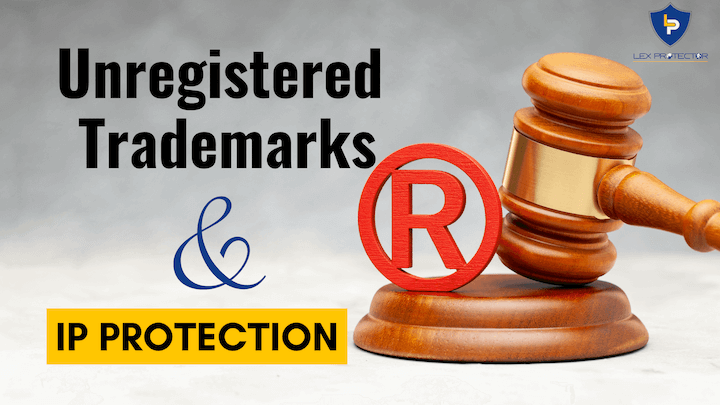Unregistered Trademarks and their IP Protection

Introduction
Registration of a trademark under the Indian Trade Marks Act, 1999, is not mandatory. As a result, both registered and unregistered trademarks are defendable in India through a passing off or infringement lawsuit in a court of law.
India, a common law nation, upholds both codified law and common law principles, and as a result, it offers both infringements and passing off actions for trademark infringement. In India, rights to a trademark can be obtained by earlier adoption as well as through extensive, continuous, honest, legitimate, and uninterrupted use of the mark. Both passing off and trademark infringement are recognized under Section 135 of the Trade Marks Act.
What are Registered and Unregistered marks?
A trademark that has been registered under the Trademark Act of 1999 grants its owner exclusive rights. His ownership of such a trademark after registration becomes the initial piece of proof.
As we previously noted, the Act does not require that a trademark be registered, therefore unregistered trademarks are those that are not registered. However, compared to the legal protection provided to registered trademarks, the protection they receive is quite limited.
What is passing off?
Passing off is a common law tort, which can be used to enforce unregistered trademark rights. In the case of Perry v Truefitt (1842) for the first time the principle of passing off was introduced, i.e. “Nobody has the right to represent his goods as the goods of somebody else”.
Criteria for a passing off action
The primary purpose of India’s passing off statute, which is actionable under common law, is to safeguard the goodwill associated with unregistered trademarks. The fundamental rule of law states that one should not profit from another person’s labor. The following are the criteria for a passing-off action.
- Reputation
It is crucial to prove in court that an unregistered trademark has a reputation in the market and can be easily differentiated under the class of goods, businesses, or services for which it is used. An unregistered trademark must have some goodwill and reputation in the market which means, people should recognize such a mark.
- Prior user
Unregistered trademarks are given statutory protection under Sections 34 and 35 of the Trademark Act, 1999. These clauses essentially state that a prior user of a trademark will have priority over later users notwithstanding being registered in order to protect the interests of an unregistered trademark.
- Misrepresentation
The party instituting an action against passing off needs to prove that such passing off by a third party has caused him actual damage in business and profit due to the misrepresentation.
Finding & Conclusion
An unregistered trademark owner has some rights and remedies according to the Trademark Act of 1999 and common law remedies, but it also puts a burden on him. The unregistered trademark owner may believe that taking legal action to prevent passing off provides adequate protection, but there are still requirements that must be completed. A trademark serves as a brand’s and a product’s identification. The rights derived from such a brand must be very carefully considered and understood. It is advised for such a person to register his trademark in order to take advantage of the range of rights offered by the Trademarks Act, of 1999.

